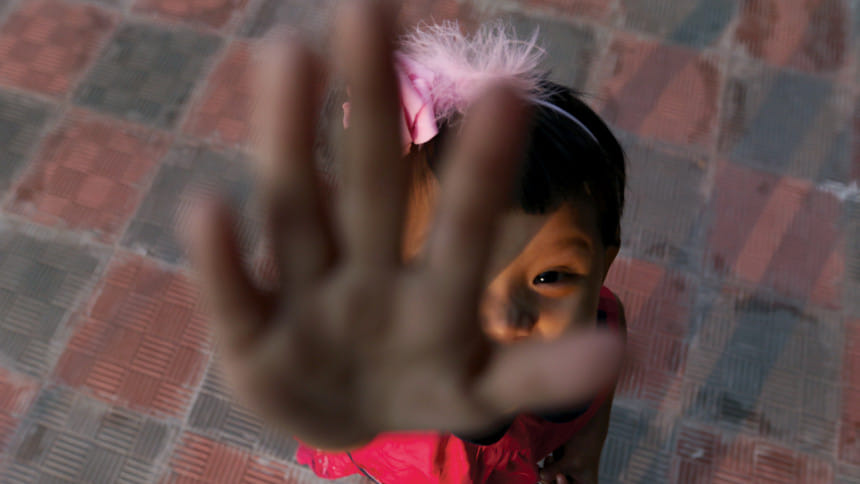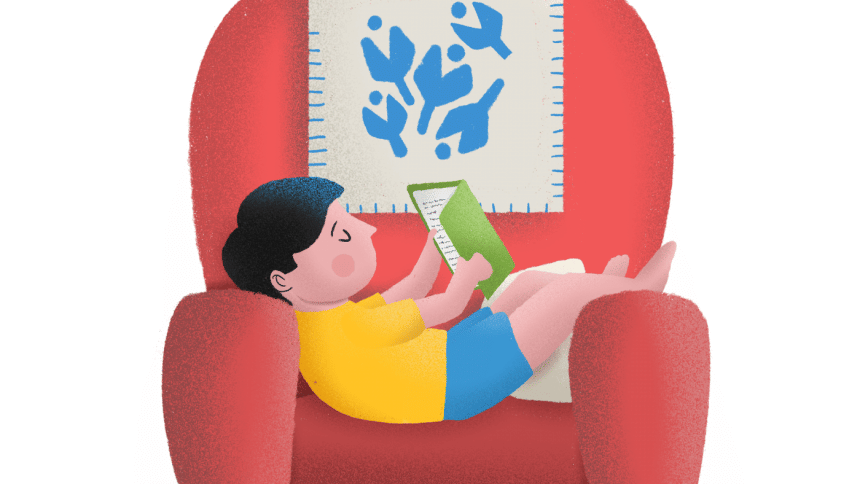Protecting children’s minds from coronavirus

The Covid-19 pandemic is suffocating the world with its tight grip. With thousands affected and many more in their own homes in isolation, it is crucial to consider the impacts it may be having on the society—and especially the children. Be it the closure of the schools, or a future with uncertain consequences, the children of the world are suffering.
One of the biggest changes that people have adapted into their lifestyles is the concept of social distancing.
Psychologist Tarana Anis, from the Child Development Centre of Apollo Hospitals Dhaka, says, "From a very young age, we teach our children the importance of being social and to network. Suddenly, we are asking our children to maintain distance and are restricting them in everything they do. Let alone going outside, they are even restricted from coming in close contact with their own family members even though physical touch is a basic developmental and psychological need. While the essentiality for such restrictions are completely undeniable, we must consider the increased risk of anxiety, fear and other mental health issues among the youth."
The rigid school-friends-homework-family schedules the children has perhaps now turned into a life of negativity. The constant news updates from around the country and the world, various expressions of panic, and the never-ending discussions of possible consequences leads to the development of a stressful and overall damaging atmosphere, and ultimately psychological deterioration.
According to Tarana, the impacts of such a situation will come in multiple stages, as she further elaborates.
"At first, the children will undergo acute stress, which will cause them to experience the emotions of fear, panic and distress while in the future, they will be experiencing post-traumatic stress disorder (PTSD). All of this may ultimately lead to the development of negative cognition," she explains. This phenomenon causes people to grow a negative set of beliefs that can limit their functioning in the future.

While we are experiencing something unique to all of us right now, we must consider the essentiality of mitigating the damage that is being done to children. However, when we speak about controlling stress levels for children, it is vital to do so for their parents as well. Stress is contagious; in frustrating times like these and the increased amount of time they are having to spend with their children, it is common for parents to struggle with their children. It is also a common practice to get frustrated and rebuke children for being restless and impatient.
Tarana stresses about the role of parents when managing stress levels at home, "It is important to understand that feeling impatient or frustrated in times like this is natural. However, it is harmful to be denying these feelings. It is important to maintain complete transparency about current conditions and the emotions related to it with children. Parents should not hide information regarding the reality of the situation, neither should they be extremely negative. Highlight the positives such as the benefits of personal hygiene, and continue to maintain a healthy routine for themselves and their children with a balanced diet and adequate sleep. Limiting constant consumption of pandemic-related news to a few specific times and managing stress levels is absolutely necessary for parents themselves."
She further recommends children to maintain a proper and healthy routine which not just requires them to study for a better part of the day, but to also find ways to enjoy their time by taking part in indoor activities and games with their parents. They should not only be restricted to board games but incorporate light physical activity, maybe in their balconies and roofs where sunlight is available. This can also be a great opportunity for children to learn to lend a hand with domestic chores. Exposure to sunlight and fun activities along with engaging in re-connecting with friends and family will help them feel secure and supported through this challenging situation.
Let us hope that parents do not have to refrain from embracing their children, and that the children find ways to keep their body and minds healthy until the world heals itself. For now, while we are all hopefully indoors, let us make up for the missed hugs with a good old game of ludo or carom.

 For all latest news, follow The Daily Star's Google News channel.
For all latest news, follow The Daily Star's Google News channel. 



Comments